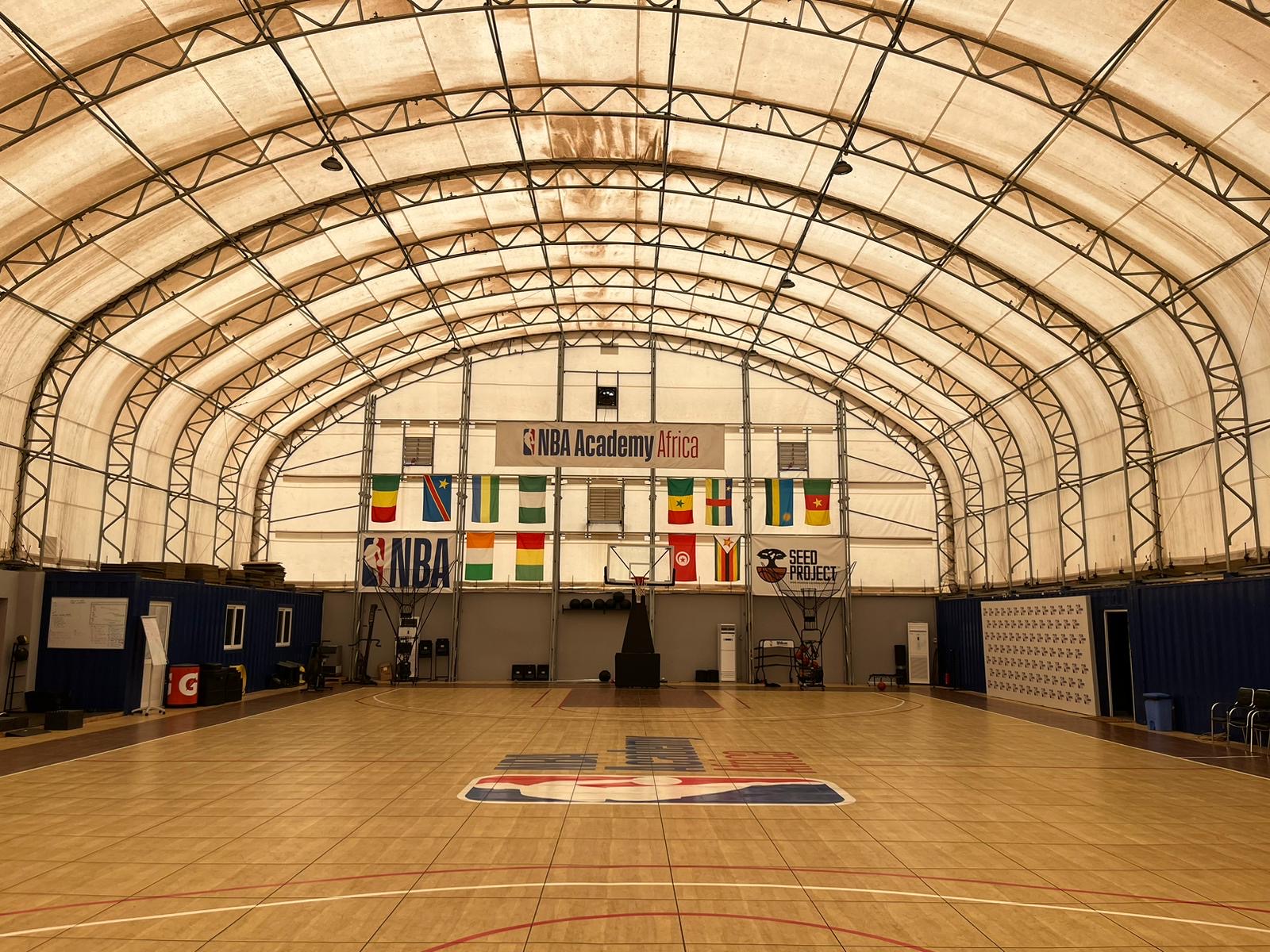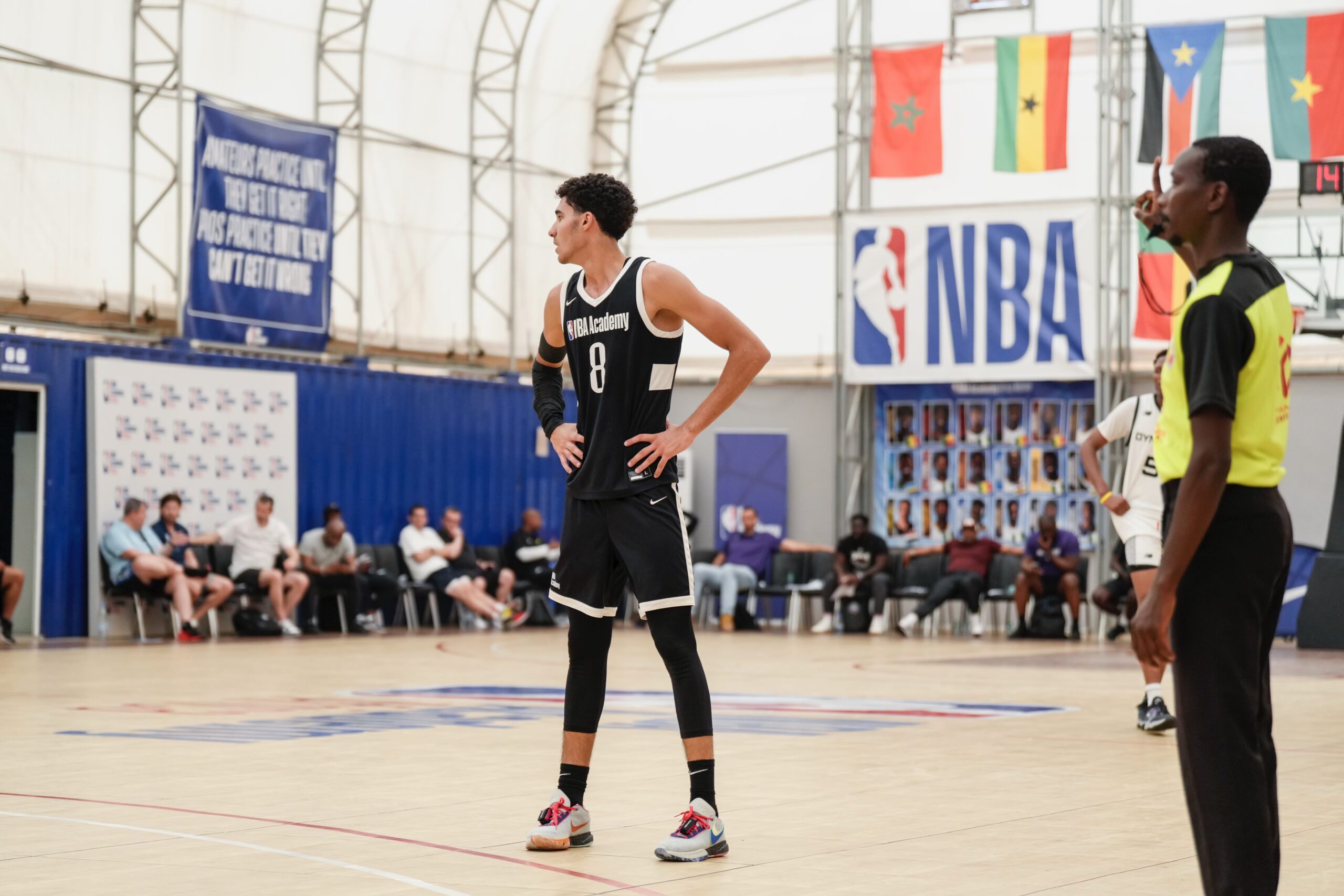SALY, Senegal – Joel Embiid, Hakeem Olajuwon, Dikembe Mutombo. These are the elite African professional basketball players that National Basketball Association fans have known over the decades, towering big men who dominate the low post on both ends of the floor.
As the sport grows in popularity on the continent, the beginnings of a new kind of top-level African talent is emerging.
“Everybody wants the 6-10, seven-footers, but we got 6-5 dudes,” NBA Academy Africa Technical Director Roland Houston said, “This kid [Academy graduate, Amar Diop] going to Florida Atlantic can flat out play. We have guards. So that means we’re here right now.”
NBA Academy Africa in this coastal town is one of three overseas academies, along with locations in Mexico and Australia. The facility functions as a school and a rigorous training program for the most promising young players across Africa.
While the Academy continues to house its share of giants, (nine of 21 current players are 6-10 or taller), it is also preparing a talented group of guards to succeed at basketball’s highest levels.
One of those has been the team’s point guard Seifeldin “Saif” Hendawy, a recent Egyptian Academy graduate headed to Loyola-Chicago.
Hendawy never grew up trying to emulate any guards from his home continent, instead looking to American examples like Kyrie Irving and Magic Johnson.
His teammate and backcourt partner Ahmed Bedoui from Tunisia had one role model from his home country, Omar Abada who plays for the nine-time champions of the Egyptian Basketball Super League, Al Ahly, but when it comes to the NBA he has none. Instead, he said he looks up to American guards, his favorite being Austin Reaves.
In order to change that, young African players need access to top-level development work and the Academy is the place to find it.
“What we do on the ground as far as our drill work, our laboratory work, we hone in on those things that will translate [to the next level],” Houston said.
During an Academy practice the guards are separated from the bigs to work on ball handling, dribble drives to the basket, and scoring at the rim through contact from a defender. Later when they scrimmage, Hendawy gets to the basket and executes a crafty lay up while absorbing a blow from one of the team’s giant centers.

Absent from that practice with the flu was the Academy’s youngest player, Joel Ntale Kabugi, a 6-3 guard from the Democratic Republic of the Congo who, according to his teammates, has given himself the nickname “JoJo Batman”.
Kabugi says the name was given to him by friends at home in the Congo.
Many who watch Kabugi play sing his praises, specifically referencing his explosiveness. Kabugi’s favorite player is Russell Westbrook and he thinks they share some traits on the court.
“The explosivity, when he attacks the basket,” Kabugi said.
He doesn’t idolize any African guards, but his favorite player from his continent is Warriors’ wing Jonathan Kuminga. The two players share the same Congolese hometown of Goma, but Kabugi hasn’t had the chance to meet him yet.
He hopes to elevate his game enough that they may one day share a court.
Henawy is trying to help him develop the same guard skills the Academy has gifted him.
“It takes a lot of failure for you to succeed at the end,” Hendawy said, “I’m just trying to help him always have the feel of the game, do the right read, see the open man.”
“Since I came to the academy, I’ve been looking up to them [Hendawy and other older guards]. They’ve been helping me a lot, everyday they give me advice,” Kabugi said.
How good does Hendawy think “JoJo Batman” be?
“He can be elite, really really he could be elite, better than Ant-Man [Anthony Edwards],” he said.
Hendawy, Bedoui and Kabugi might not have had many NBA or Division 1 role models from their continent, but maybe one day they could be that for another kid.
“I will always try to mentor young generations when I grow up,” Hendawy said, “When I reach to a certain point, like my highest point that I could get. I’m just going to always come back and give more and share my experiences.”
Kabugi wants to return and help the local academy that helped him in the Democratic Republic of Congo.
“They [Congolese kids at his academy] are not in a good situation, so they need someone who can provide something for them,” Kabugi said. “If I make it to the NBA or somewhere pro, I’ll be coming back.”


You must be logged in to post a comment.